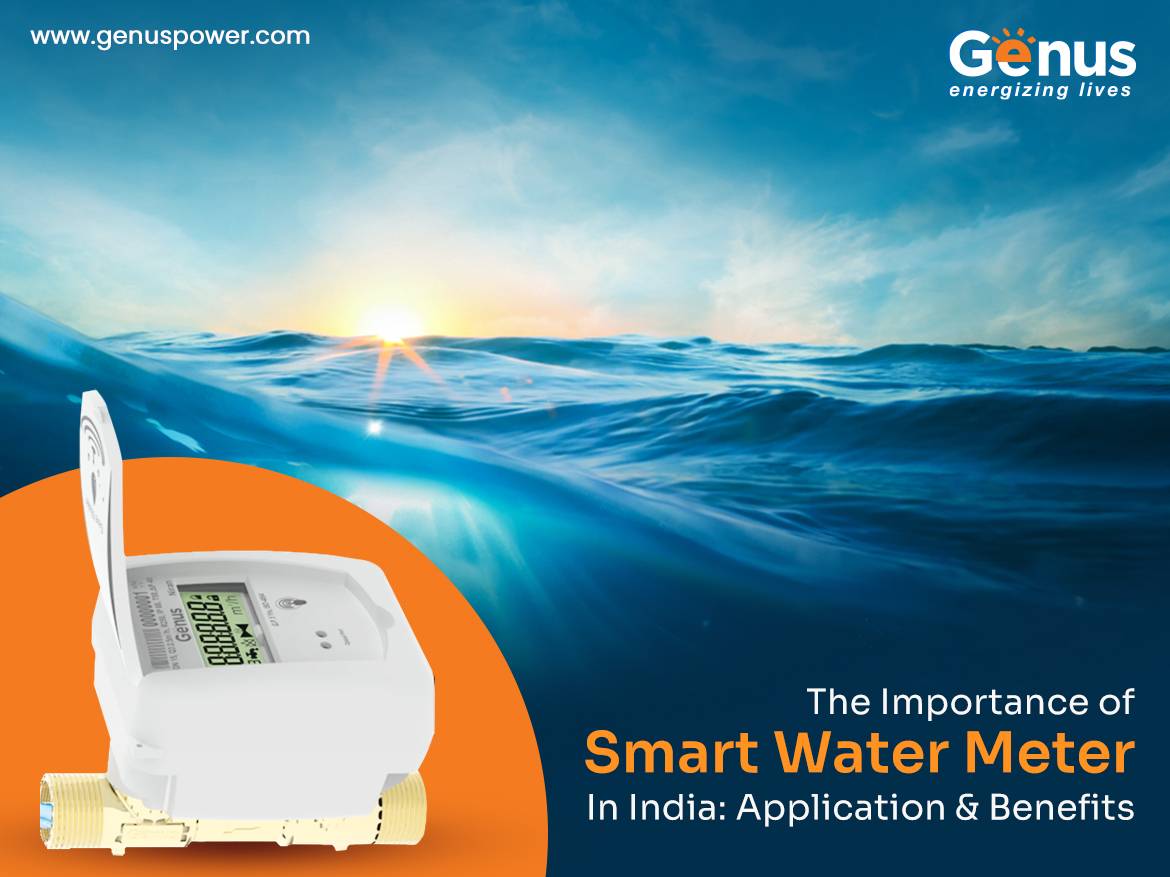
Water is our most precious natural resource and something which we don’t have an unlimited amount of. Approximately 49 billion liters of water is wasted in India every year. And it’s projected that by 2040, humans will have to grapple with acute angel water shortage if we don’t do something about it now.
In the face of such crises, turning to new-age smart technology is our only hope. Sure, we can collectively, as a people, adopt economic water usage practices. But that’s too complex to establish, monitor, and control. What we can do is build sustainability within the core infrastructure.
With the advent of smart water meter in India, we are moving towards a more sustainable utilization of water through better monitoring, conservation, and management.
Let’s understand what the smart water meter is, its use cases, and its benefits.
A smart water meter is a new-age device that monitors and measures water consumption in homes, commercial spaces, and other facilities. Unlike traditional water meters, which require manual readings by utility personnel, smart water meters have sensors and communication capabilities that enable automated data collection and transmission.
These meters have an electronic computing unit (ECU) that facilitates full duplex communication between the smart meter and the supplier. To track water usage, these meters use electromagnetic and ultrasonic readings that provide very precise readings.
Non-revenue water (NRW) is still a major issue many water supply utilities face in India. In fact, around 40% of India’s water supply falls under NRW, which is higher than the global average range of 30%-35%.
NRW includes free authorized water for which payment is not collected, leakages, as well as commercial and physical losses in supply. It’s the difference between the system input volume (SIV) that goes into the distribution system and the actual amount of water for which consumers are billed. As a result, the economy takes a hit, leading to resource shortages and water management issues.
However, with the adoption of advanced leak detection systems and smart water meter in India, the water utility sector can reduce NRW.
Here are some of the benefits of incorporating smart meter in our grid infrastructure.
Smart meters are generally more precise compared to their traditional counterparts, which help minimize discrepancies in water usage and guarantee that customers pay only for the water they consume—no more or less.
This accuracy leads to considerable cost savings for the utility provider without notably increasing the financial burden on any individual customer. Although inaccuracies in measurement are typically minor, they can add up to a substantial apparent loss when calculated over the entire customer base.
A smart water meter helps identify inefficiencies and patterns in water consumption. These meters are equipped with IoT sensors, which regularly track the water usage of each individual consumer.
The data collected through the sensors suite can be further monitored, and both utilities and users can understand their consumption habits and know where they are using excess water. This reduces instances of over-consumption of water and the resulting wastage.
Smart water meters enable bidirectional communication between water suppliers and their residential customers. This allows for the monitoring of water usage in real-time across homes connected to the utility network, thereby eliminating the traditional requirement for manual meter readings for billing purposes each month.
With the integration of smart meter into the metering infrastructure, utilities can precisely calculate monthly bills based on daily water consumption. This automated billing system significantly simplifies operations for utility providers and reduces the expenses associated with manual billing methods.
Read More –Understanding Efficient Water Management with Smart Water Metering
Technologies like smart water meters have been quite effective in reducing water loss and curbing NRW globally. It has also helped utilities improve their billing efficiency, increase water conservation, and optimize resource allocation, all of which have contributed indirectly to revenue generation.
Moreover, government initiatives such as Smart City projects are also generating demand for smart water meter in India.
Over time, water utility companies are expected to embrace cutting-edge digital technologies like Artificial Intelligence (AI) and Big Data Analytics. As a result, Software-as-a-Service (SaaS) solutions will become a key area of expansion.
The availability of real-time data, thanks to the smart water meter, will lead to the creation of mobile apps designed to monitor water demand and consumption data directly at the source of entry and at individual faucets via smartphones.
Genus is leading this digital transformation with our state-of-the-art smart water meters. Designed for accuracy and longevity, our meters are equipped with the latest communication and sensor technologies that make flow and leakage detection seamless and real-time.Check out our range of energy meter and water meters by visiting our website. Or, get in touch with us to know more.